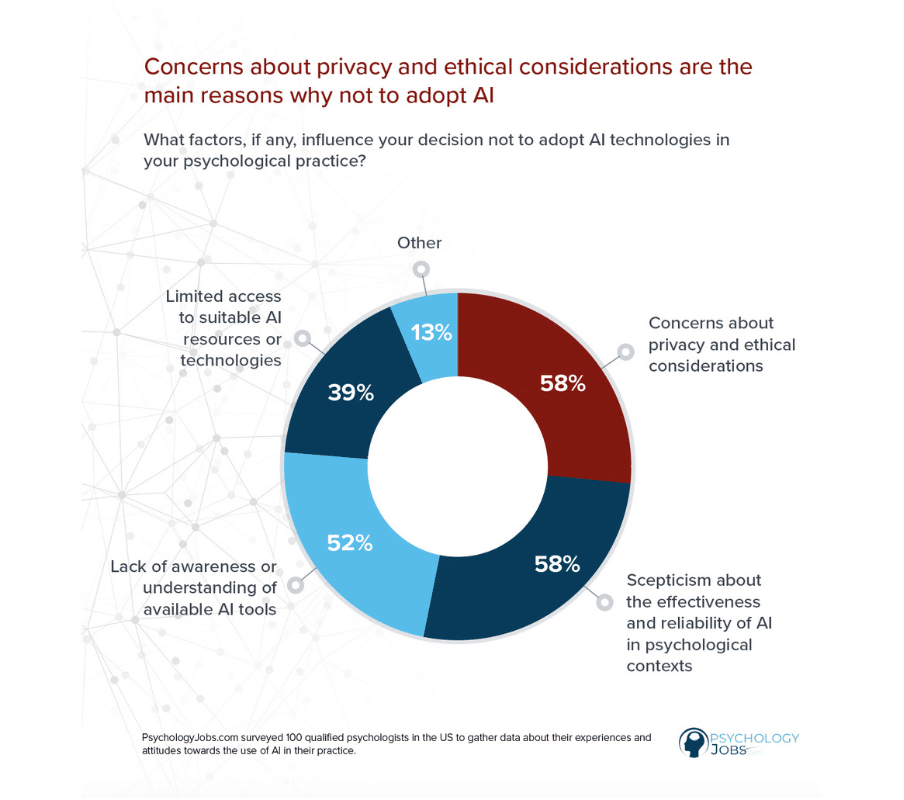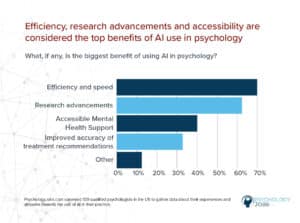What impact are AI tools having on the mental & behavioral health industries?
1 in 2 psychologists are concerned about the use of AI in their practice
To establish current attitudes towards artificial intelligence, we asked qualified psychologists about their worries around using AI as part of their practice. In response, over half of them (55%) said they are highly concerned about AI’s role in psychology with just 16% being untroubled by its expansion into their sector.
Exploring what’s driving these opinions, we asked psychologists what their most pressing concerns were. Surprisingly, they are least worried about losing their jobs to AI, with just 6% of respondents voicing this fear. Instead, key areas of anxiety were around AI’s ability to interpret data, with 2 out of 3 psychologists calling this out as their main concern. Ethical considerations were also a tension point, with over a third of psychologists believing that incorporating AI in psychological practice misaligns with ethical standards and moral principles.
Research psychologists pulled out bias as a top concern, a reoccurring theme in wider conversations about AI, with limited data sets becoming a worry as businesses across multiple sectors begin to utilize AI tools more and more. But what does this mean for the field of psychology?


/imagine a cognitive psychologist at work

/imagine a health psychologist at work

/imagine a school psychologist in photorealism

/imagine a couple at a therapy/counselling session

/imagine a couple who needs couples counselling due to addiction

/imagine an LGBTQ+ couple at a counselling session

Despite these patterns, over 50% of our group is not currently using AI tools.
Alongside clear concerns about ethics and bias, we also asked psychologists what factors are influencing their decision not to adopt AI technologies in their psychological practice.
Half said a lack of awareness/understanding about the technologies available is the main reason why they don’t currently use AI tools, rather than the concerns discussed above. Over a third of respondents also cited limited access to relevant tools as the reason why they don’t use AI (as opposed to privacy concerns or skepticism).
These figures show that while the majority may not be using these tools now, the main barriers against using AI in psychology seem to be knowledge gaps and gaining access to tools rather than more personal factors.
A career in psychology can involve a wide range of job titles and work settings as well as a number of different educational and career paths.
